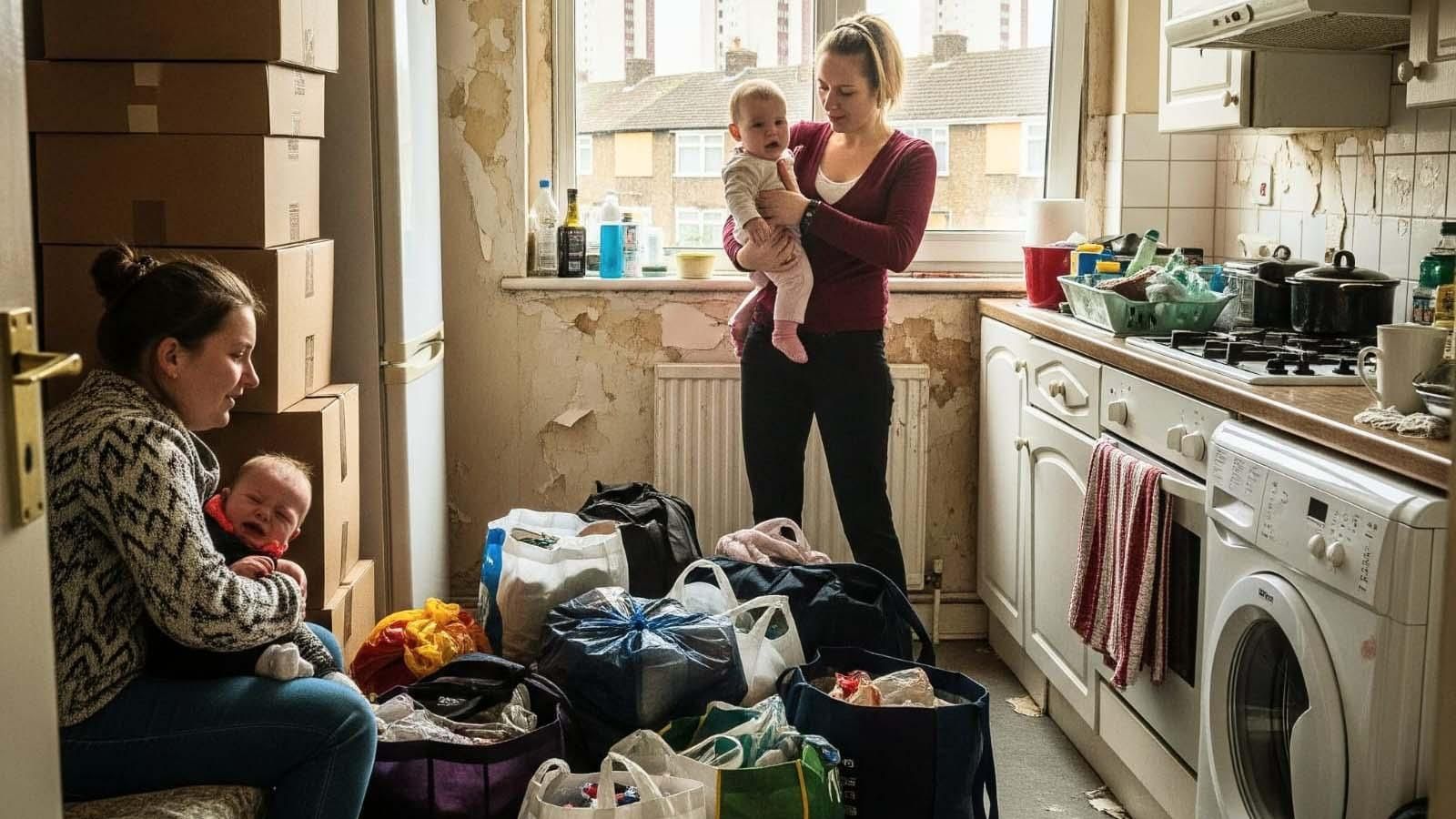A major new report reveals that unplanned immigration is driving up rents across England by hundreds of pounds a month, exacerbating the UK's housing crisis and placing significant financial strain on long-term residents. The study, conducted by the right-of-centre think tank Onward, presents a stark picture of how rapid population growth, coupled with a persistent failure to meet housing targets, is directly impacting the lives and livelihoods of people across the country.
The groundbreaking research, utilizing an experimental model, quantifies for the first time the direct link between net migration and escalating rental costs. Since 2001, net migration has pushed up average rents in England by an additional £132 per month, amounting to an extra £1,584 annually. In London, the impact is even more severe, with rents increasing by an astounding £216 per month, or £2,592 a year.
"These figures illustrate how even moderate changes in housing scarcity can have significant financial implications for renters," stated Onward in its report. "In short, high net migration has made England’s housing shortage worse, including in the private rental market." The think tank urged the government to "confront the reality that high legal migration, combined with a housing market that fails to deliver homes where people want to live, is worsening the housing shortage."
Robert Jenrick, the shadow justice secretary, welcomed the "first of its kind" research, highlighting how mass migration is making it increasingly difficult for young people to save for a deposit and get onto the housing ladder. "Uncontrolled migration isn’t working for anyone in this country and it’s time we put a stop to it," he asserted.
The Office for National Statistics (ONS) reported a surge in net migration, the difference between arrivals and departures, from pre-Brexit levels of 200,000-260,000 to a record high of 906,000 in the year to June 2023. While measures introduced last year, such as barring foreign workers and students from bringing dependants and higher pay thresholds for skilled workers, have more than halved this figure to 431,000 by December last year, the cumulative effect of past high migration remains a pressing concern.
The core of the problem lies in the significant imbalance between housing supply and demand. The Onward report notes that England has consistently fallen short of its house-building targets. Despite a previous Conservative government target of 300,000 new homes annually, figures for 2021/22 and 2023/24 show only around 234,000 homes were built per year. This has resulted in a net shortfall of 1.3 million settled migrants beyond the number of new homes constructed. The report estimates that since 2001, out of 6.9 million additional people coming to the UK, approximately 5.8 million have settled in England.
Further research by the University of Oxford’s Migration Observatory corroborates these findings, indicating that foreign-born individuals are more likely to be in the private rental sector. In 2021, only 43% of foreign-born residents in England and Wales owned their homes, compared to 67% of UK natives. EU-born residents, in particular, showed lower home ownership rates, with over half living in privately rented accommodation.
The financial burden on UK residents is substantial. Onward estimates that the cumulative impact for someone renting in London since 2001 would be an staggering £20,975 in today’s prices due to these migration-driven rent increases.
The report concludes by emphasizing the urgent need for increased housing construction across the UK, with a high priority on affordable housing, especially in high-demand areas like London. This, it argues, is crucial not only for the successful integration of recent migrant cohorts but also to ensure that all residents, regardless of their origin, can access affordable housing and maintain a decent quality of life in the UK.




_1.jpg)


.svg)

_2.jpg)